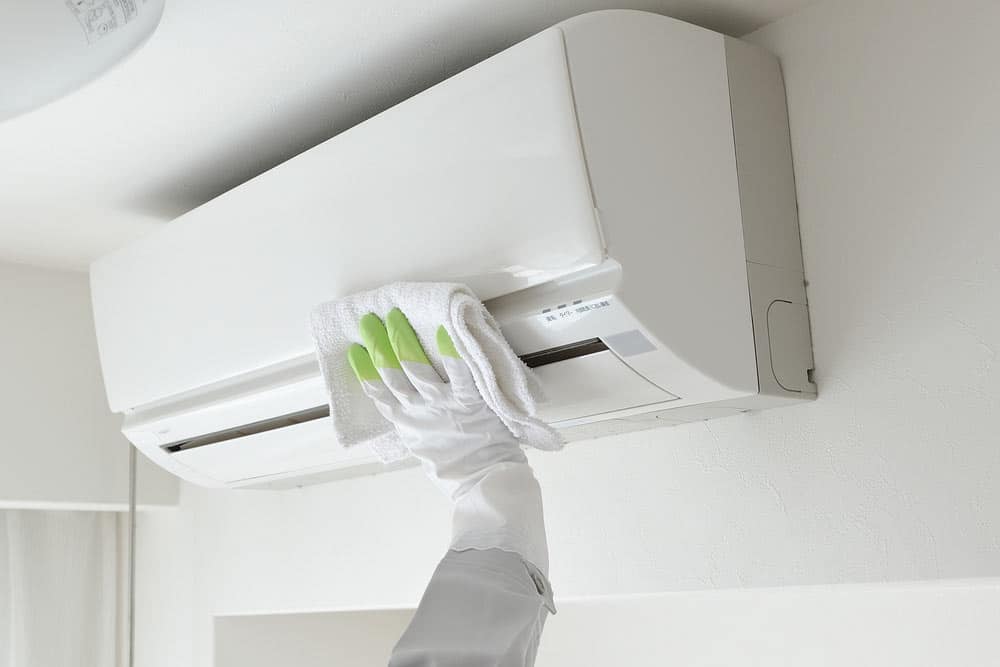Keeping your air conditioning system in top shape is essential for maintaining a comfortable living environment and ensuring energy efficiency. Regular maintenance can extend the lifespan of your unit, improve air quality, and save you money on energy bills. In this blog, we’ll explore a comprehensive guide on how to keep your air conditioning in Maitland running smoothly.
Regularly Change or Clean the Air Filters
Air filters trap dust, dirt, and other particles, preventing them from entering the air conditioning system. Over time, these filters can become clogged, reducing airflow and making your system work harder. This can lead to higher energy consumption and potential damage to the unit. To keep your system efficient:
- Check the air filter every month.
- Replace disposable filters every 1-3 months, depending on usage.
- Clean reusable filters monthly, following the manufacturer’s instructions.
Keep the Outdoor Unit Clean
The outdoor unit, or condenser, is exposed to the elements and can accumulate dirt, leaves, and debris. Keeping it clean ensures optimal performance and prevents overheating. Here’s how to maintain it:
- Regularly inspect the unit for debris.
- Use a garden hose to remove dirt and debris from the fins.
- Trim any nearby vegetation to ensure at least two feet of clearance around the unit for proper airflow.
Schedule Annual Professional Maintenance
Even with regular DIY maintenance, your air conditioning in Maitland needs professional care. An HVAC technician can thoroughly inspect and tune up, addressing issues you might overlook. During an annual maintenance visit, a technician will:
- Inspect and clean the coils.
- Check refrigerant levels and recharge if necessary.
- Ensure the thermostat is functioning correctly.
- Tighten electrical connections.
- Lubricate moving parts.
- Inspect and clean the condensate drain.
Check the Thermostat Settings
An improperly set thermostat can cause your air conditioning system to run inefficiently. To optimise performance:
- Set your thermostat to a comfortable temperature when you’re home.
- Use a programmable thermostat to adjust the temperature when you’re away or asleep.
- Consider upgrading to a smart thermostat for more precise control and energy savings.
Inspect and Seal Ductwork
Leaky ducts can lead to significant energy loss, causing your system to work harder to cool your home. This is particularly important if you have ducted air conditioning in Newcastle, as leaks can greatly reduce efficiency. Regularly inspect your ductwork for leaks and seal any gaps with duct tape or mastic sealant. Ensuring your ducts are properly insulated can also improve efficiency.
Clean the Evaporator and Condenser Coils
Coils can accumulate dirt over time, reducing their ability to absorb heat and cool your home effectively. To keep your coils clean:
- Turn off the power to the unit.
- Remove any dirt and debris from the coils using a soft brush.
- Use a coil cleaner spray to remove stubborn dirt.
- Rinse with water and allow to dry before restoring power.
Check the Condensate Drain Line
The condensate drain line removes the moisture your air conditioning system extracts from the air. It can cause water damage and affect the system’s efficiency if it becomes clogged. To maintain the drain line:
- Inspect the line regularly for clogs.
- Use a wet/dry vacuum to remove any blockages.
- Pour a mixture of water and vinegar through the line to prevent algae and mould buildup.
Ensure Proper Insulation
Proper insulation helps maintain the desired temperature in your home, reducing the workload on your air conditioning system. Check your home’s insulation, especially in the attic and around windows and doors, to ensure it’s adequate.
Avoid Overworking Your System
Using your air conditioning system excessively can lead to wear and tear. To avoid overworking your unit:
- Use ceiling fans to circulate air and reduce the load on your system.
- Close curtains or blinds during the hottest parts of the day to block out the sun.
- Limit the use of heat-generating appliances during peak cooling times.
Monitor Energy Consumption
An unexpected increase in energy bills can indicate an issue with your air conditioning system. Regularly monitor your energy consumption and compare it to previous months. If you notice a significant spike, it might be time to inspect your system for potential problems.
Upgrade When Necessary
No air conditioning system lasts forever. If your unit is over 10-15 years old, frequently needs repairs, or is no longer energy-efficient, it might be time to consider upgrading to a newer, more efficient model. Modern systems offer better performance, enhanced energy efficiency, and advanced features such as smart controls.
Know When to Call a Professional
While regular maintenance can prevent many issues, some problems require professional attention. If you notice any of the following signs, it’s time to call an HVAC technician:
- Strange noises or odours coming from the unit.
- Inconsistent cooling or poor airflow.
- Frequent cycling on and off.
- Water leaks around the indoor unit.
Conclusion
Maintaining your air conditioning system in top shape requires regular care and attention. By following these tips, you can ensure your system operates efficiently, provides consistent comfort, and lasts for many years. Regular maintenance not only improves performance but also saves you money in the long run by preventing costly repairs and reducing energy bills. Prioritise the health of your air conditioning system, and enjoy a cool, comfortable home year-round.



